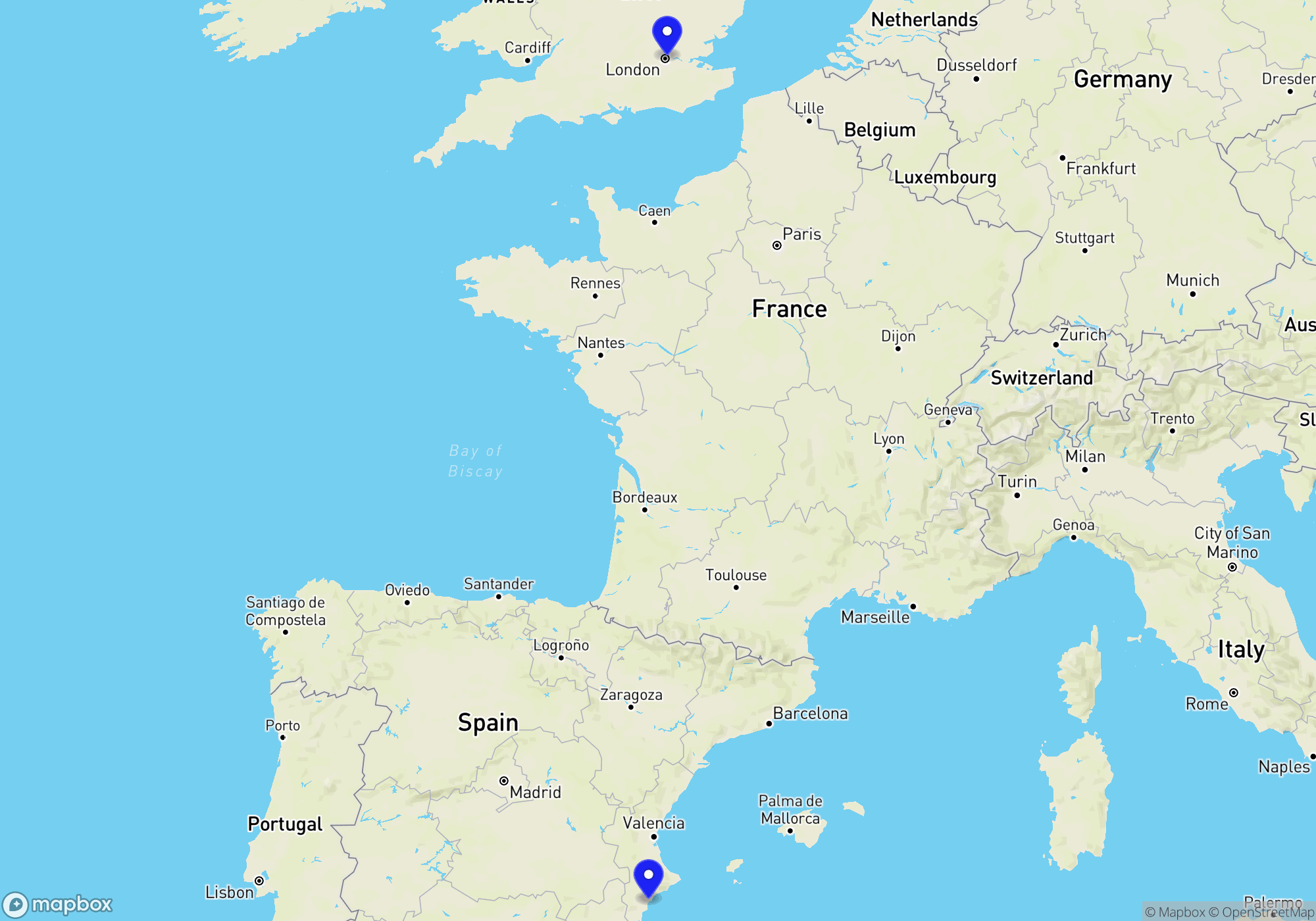
You can buy train tickets directly from the operator or through a reseller. The reseller is typically slightly more expensive (3-5%) but can provide an easier booking experience, especially if you travel with more than one operator.


These operators provide a complete journey either as a direct connection or through their partners. Even if a change of trains is involved, it’s all part of a single itinerary managed by the same train company or its partners, offering a smoother and more coordinated travel experience.

Some operators don’t run direct trains the whole way, but they serve either the departure or arrival station. In many cases, you can combine two of these operators to complete your journey by changing trains along the way. This is often a flexible and budget-friendly way to travel — especially if you’re comfortable piecing together your own itinerary.
Just keep in mind that these are separate journeys, which means a delay on the first leg could cause you to miss the second without automatic compensation or rebooking. It’s a great option for confident travelers who don’t mind a bit of extra planning.

Travelers looking to journey from London to Alicante by rail might be confused, as FlixBus is primarily known as a coach service provider rather than a rail operator. However, FlixBus has expanded to include FlixTrain, which operates train services in certain regions, primarily within Germany and Sweden. Unfortunately, neither FlixBus nor FlixTrain directly operates train services from London to Alicante. The journey typically requires the use of multiple rail operators and possibly other modes of transportation, such as buses or flights.
In general, FlixTrain provides budget-friendly rail travel options with a focus on comfort and affordability. Their trains mainly consist of modern, refurbished coaches offering comfortable seating, free Wi-Fi, and power outlets at every seat. FlixTrain aims to provide a customer-centric experience with an easy booking process through their user-friendly app and website. Their customer support services include online assistance and a helpline to address passenger queries. However, for trips spanning multiple countries, such as from the UK to Spain, travelers usually need to connect at major European hubs using different rail companies like Eurostar, SNCF, or Renfe, each having its own amenities and customer service options. For detailed planning, including scheduling and ticketing, travelers should consult the specific operators providing services along different segments of the journey.
The Interrail Global Pass can be used for travel from London to Alicante, but UK residents cannot use it for the portion of the journey within the UK. The Interrail One Country Pass is not applicable for travel across multiple countries, so it would not be valid for this journey from London to Alicante. The Eurail Pass can be used by non-EU residents for the entire journey from London to Alicante, including travel within the UK.
Upon arriving in Alicante by train at the Alicante-Terminal station, you have several options to explore the city using local transportation. The Alicante TRAM is a popular choice, offering scenic routes along the Costa Blanca. The main TRAM station closest to the train station is at Luceros, just a short walk from Alicante-Terminal. Here, you can catch several lines to key destinations such as the beach area, tourist attractions like the Castle of Santa Bárbara, or even further up the coast to towns like Benidorm. The TRAM operates frequently, making it a convenient way to get around.
For more immediate and direct travel within the city, taxis are readily available. You can find taxi stands outside of the train station or hail one on the streets. Taxis in Alicante are metered, providing a straightforward and reliable way to reach your destination quickly. Ridesharing services like Uber and Cabify also operate in Alicante, offering app-based booking and cashless payment options. These services can be arranged directly from your smartphone, often providing a cost-effective alternative to traditional taxis.
While Alicante does not have a metro system, the local bus network, operated by SuBús, covers the city and surrounding areas extensively. Buses are a good option if your destination is not easily reachable by TRAM. Tickets can be purchased onboard or using rechargeable cards for more frequent travel. Buses are an economical option for navigating the city, and routes and times can be checked online or at bus stops. Together, these options provide a comprehensive and efficient way to explore Alicante and its surroundings.
Alicante serves as a significant hub within Spain’s rail network, providing efficient domestic and limited international train connections. Domestically, one of the most popular routes is the high-speed AVE service to Madrid. This service connects Alicante’s Estación de Alicante-Terminal with Madrid’s Puerta de Atocha in about two hours and thirty minutes, offering multiple departures daily. There is also an Intercity service to Barcelona, which travels via Valencia and takes around four and a half to five hours, making it a popular choice for those traveling to Catalonia. Additionally, Renfe, the Spanish national railway company, offers regional services to cities such as Murcia and Valencia, providing convenient access to these destinations. Internationally, while Alicante doesn’t have direct international rail services, travelers can connect through Madrid or Barcelona to access broader European rail networks. From Barcelona, for example, one can connect to French cities like Paris and Marseille via high-speed TGV trains. This makes connecting through Spain’s major cities a practical approach for international travel by train from Alicante.
The best time to visit Alicante is generally during the shoulder seasons of late spring (April to June) and early autumn (September to October). During these months, the weather is typically pleasant with warm temperatures and plenty of sunshine, making it ideal for outdoor activities such as exploring the city’s beautiful beaches and historical sites without the overwhelming heat of the peak summer months. Additionally, prices for accommodations and train travel are often lower than during the high summer season, which can help in managing your travel budget.
In terms of activities and festivals, Alicante hosts Las Hogueras de San Juan in late June, a vibrant festival marking the arrival of summer with bonfires, fireworks, and parades. Visiting during this time can provide a unique cultural experience. Autumn offers a quieter atmosphere with numerous local festivals and wine harvest events in the region, allowing you to experience local culture more intimately.
Moreover, the train journey to Alicante during these periods is usually comfortable and scenic, avoiding the high foot traffic typical in July and August when most European travelers are on holiday. Thus, the combination of moderate climate, reasonable prices, and cultural activities make these periods ideal for visiting Alicante by train.
When traveling from London to Alicante by train, it’s essential to pack a valid passport or national ID card, especially if you’re a non-EU traveler, who may also need a visa. Bring your train tickets or e-tickets and consider printing physical copies as a backup. Pack comfortable clothing and a light jacket since trains can vary in temperature. Carry a universal power adapter and any necessary chargers for electronic devices, as the UK and Spain have different plug types (UK G, Spain C & F). An EU travel adapter should suffice. Bring headphones for personal entertainment and a refillable water bottle to stay hydrated. Snacks for the journey can be useful, as well as a neck pillow and a light blanket for comfort. Travel insurance documents, along with any necessary medication and a small first-aid kit, are wise to include. A guidebook or downloaded maps of Alicante can help you navigate upon arrival. Carry some euros for immediate expenses in Spain and don’t forget sunglasses and sunscreen to enjoy the sunny weather in Alicante.